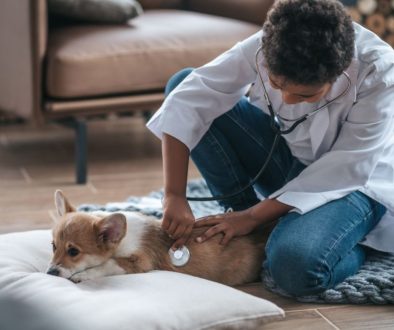Benefits of Probiotics for Dogs and Cats
Just like humans, dogs and cats can benefit significantly from probiotics—live microorganisms that promote health when consumed in adequate amounts. As more pet owners become aware of the importance of gut health for their furry companions, the demand for probiotic supplements for pets has surged. This article explores the benefits of probiotics for dogs and cats and how they can contribute to overall pet wellness.
Understanding Probiotics for Pets
Probiotics for pets are similar to those used for humans and are designed to support a healthy gut microbiome. These beneficial bacteria can help balance the gut flora, which is essential for digestion, immune function, and overall health. Probiotics are available in various forms, including powders, capsules, and treats specifically formulated for pets.
Benefits of Probiotics for Dogs
- Digestive Health:
Probiotics can help regulate digestion in dogs by promoting a balanced gut microbiota. They can be beneficial for dogs suffering from diarrhea, constipation, or other gastrointestinal issues. Probiotics help restore normal intestinal function after disturbances such as dietary changes or antibiotic use. - Immune System Support:
A healthy gut is closely linked to a strong immune system. Probiotics can enhance the immune response in dogs, helping to protect against infections and diseases. They contribute to the production of beneficial compounds, such as short-chain fatty acids, which play a role in immune function. - Reduction of Allergies:
Some studies suggest that probiotics may help reduce the severity of allergies in dogs by supporting a healthy immune response. They may also assist in managing skin conditions related to allergies, improving overall skin health. - Behavioral Benefits:
There is emerging evidence that gut health can influence behavior in dogs. Probiotics may help reduce anxiety and stress-related behaviors, contributing to a calmer and more balanced pet.
Benefits of Probiotics for Cats
- Enhanced Digestion:
Probiotics can improve digestion in cats by promoting the growth of beneficial bacteria in the gut. They can help alleviate digestive upset, such as diarrhea or vomiting, particularly in stressed or aging cats. - Support for Senior Cats:
As cats age, their digestive systems may become less efficient. Probiotics can support senior cats by improving nutrient absorption and promoting a healthier gut environment, which can enhance their overall quality of life. - Weight Management:
Probiotics may aid in weight management by influencing metabolism and fat storage in cats. They can help maintain a healthy weight and reduce the risk of obesity-related health issues. - Improved Oral Health:
Some studies suggest that certain probiotic strains may benefit oral health in cats by reducing harmful bacteria in the mouth. This can lead to healthier gums and teeth, potentially reducing the risk of periodontal disease.
How to Introduce Probiotics to Your Pet
When introducing probiotics to your dog’s or cat’s diet, consider the following tips:
- Choose the Right Product: Select high-quality probiotic supplements specifically formulated for pets. Look for products that contain strains proven to be beneficial for dogs and cats.
- Consult Your Veterinarian: Before starting any probiotic regimen, consult with your veterinarian to ensure it’s appropriate for your pet’s specific health needs.
- Start Slowly: Gradually introduce probiotics to your pet’s diet to allow their digestive system to adjust. Monitor for any changes in behavior or digestion during this period.
- Incorporate into Their Diet: Probiotics can be mixed into food, offered as treats, or given in capsule form, depending on your pet’s preference.
Probiotics offer numerous health benefits for dogs and cats, contributing to better digestion, enhanced immune function, and improved overall wellness. As part of a balanced diet and healthy lifestyle, probiotics can play a vital role in maintaining the health of our beloved pets. Always consult your veterinarian before introducing new supplements to ensure they align with your pet’s individual health needs.
References
- Weese, J.S., & Pappaioanou, M. (2010). “Probiotics in Companion Animals: A Review.” Journal of Veterinary Internal Medicine, 24(3), 506-513.
- Vighi, G., et al. (2004). “Allergic Diseases and Environmental Factors.” Allergy, 59(1), 31-39.
- Lascelles, B.D.X., et al. (2010). “The Effect of Probiotic Supplementation on the Treatment of Dogs with Chronic Diarrhea.” Journal of Veterinary Internal Medicine, 24(6), 1386-1390.



